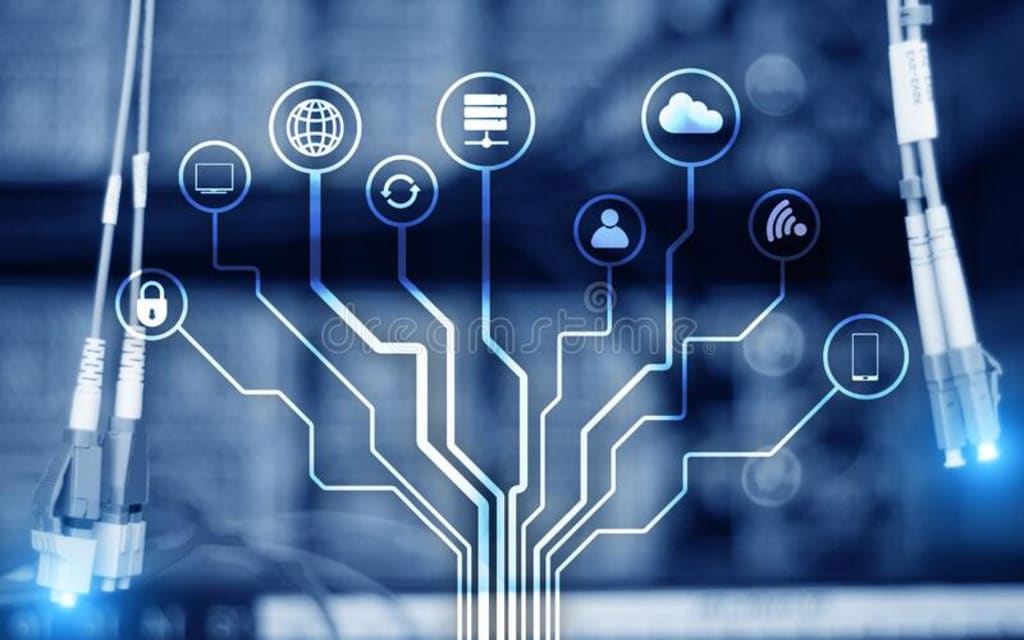ICT fundamentals
Information and communication technology

Information and Communication Technology (ICT) has become an integral part of our daily lives, revolutionizing the way we communicate, work, and access information. In this article, we will explore the fundamentals of ICT, including its definition, components, and its impact on various sectors.
Definition of ICT:
ICT, short for Information and Communication Technology, refers to the technology used to handle information, transmit and receive data, and communicate through various electronic means. It encompasses a wide range of technologies, devices, and applications that enable the processing, storage, and sharing of information.
Components of ICT:
Hardware: Hardware components are physical devices that form the foundation of an ICT system. This includes computers, servers, routers, switches, mobile devices, and other peripheral devices like printers and scanners.
Software: Software refers to the programs and applications that run on the hardware. It includes operating systems, productivity tools, database management systems, and specialized software for different purposes such as graphic design, programming, and video editing.
Networks: Networks facilitate the communication and sharing of information between devices. Local Area Networks (LANs), Wide Area Networks (WANs), and the Internet are all examples of network infrastructures that enable data transmission and connectivity.
Data: Data is the raw material of ICT. It can be in the form of text, numbers, images, audio, or video. Proper management and analysis of data are essential for making informed decisions and deriving meaningful insights.
People: People are an integral part of the ICT ecosystem. They include end-users who interact with ICT systems, IT professionals who develop, maintain, and support these systems, and decision-makers who determine the strategic direction of ICT initiatives.
Impact of ICT on various sectors:
Education: ICT has transformed the education sector by providing access to online learning resources, virtual classrooms, and e-learning platforms. It has made education more accessible, personalized, and interactive, enabling remote learning opportunities and lifelong learning.
Business: ICT has revolutionized the way businesses operate. It has streamlined processes, enhanced productivity, and enabled efficient communication and collaboration. E-commerce platforms have expanded market reach, and cloud computing has provided scalable and cost-effective solutions for storing and accessing data.
Communication: ICT has drastically improved communication by enabling instant messaging, email, voice, and video calls. Social media platforms have connected people globally, fostering virtual communities and facilitating information sharing in real-time.
Healthcare: ICT has played a significant role in the healthcare sector, facilitating the storage and exchange of patient data, telemedicine, remote monitoring, and online consultations. It has improved access to healthcare services, especially in remote areas, and has accelerated medical research and advancements.
Government: ICT has transformed governance by introducing e-governance initiatives, online service portals, and digital payment systems. It has streamlined administrative processes, increased transparency, and enabled citizens to participate in decision-making through online platforms.
Challenges and Future Trends:
While ICT has brought numerous benefits, it also presents challenges such as data security, privacy concerns, and the digital divide, where certain populations have limited access to ICT resources. Addressing these challenges and ensuring equitable access to ICT remains a priority.
Looking ahead, emerging technologies like artificial intelligence, blockchain, and the Internet of Things (IoT) will continue to shape the future of ICT. These technologies have the potential to further revolutionize sectors such as transportation, energy, and entertainment, opening up new opportunities and challenges.
In conclusion, ICT is a dynamic and ever-evolving field that encompasses various components such as hardware, software, networks, data, and people. Its impact spans across different sectors, transforming the way we communicate, learn, work, and access services. By understanding the fundamentals of ICT.
Thank you for reading my page
One like and subscribe






Comments
There are no comments for this story
Be the first to respond and start the conversation.